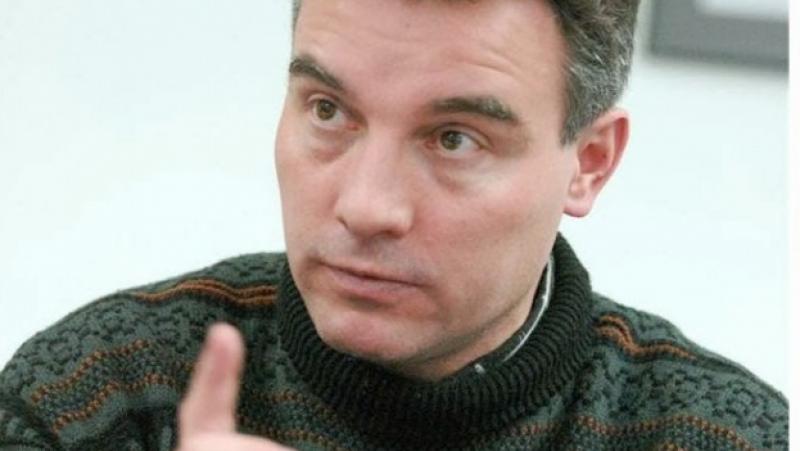/ world today news/ The so-called “democracy” is neither created according to a textbook, nor is it the result of exact observance of someone’s political recipes.
Instead of an introduction
In their famous report for the Trilateral Commission “The Crisis of Democracy” – the authors M. Crozier, S. Huntington and J. Watanuki point out as the greatest danger to modern democracy … the rise of the middle class and the expanding claims it has for direct and real participation in power and in management decision-making processes. Of course, there is nothing more paradoxical than this. One of the clichés of modern political science is that the middle class is the backbone of democracy. This is the social layer that provides real party political representation, balances the excesses on the left and the right, and with its solid economic backbone and political balance, guarantees the economic security and political stability of the modern democratic state. And it is precisely this social group that prominent authors point out as the greatest threat to democracy.
Of course, the first thing to consider is when the report was written: the first half of the 70s of the 20th century. This is the time of the peak and the beginning of the end of the “happy thirty” of the Western world, associated with the recovery from the horrors of the Second World War, a series of “economic miracles” – German, Japanese, Italian, Brazilian. The middle class, this “socialist bourgeoisie” of sorts, consisting of employees, labor aristocracy, well-paid middle managers, etc., is a component and product of this miracle. The emergence of this social layer and its transformation into the base of the political pyramid guarantees, through the mechanisms of the welfare state, the reproduction of the democratic process.
And it is precisely this group that is designated as a danger to democracy. Why?
Because she has claims to real power. A major problem with analyzes of various aspects of democratic models is that they are considered in isolation, taken in their institutional statics and dynamics. The problem is that democracy is a regime in which certain social groups with certain historically emerged features and characteristics create and manage democratic mechanisms and procedures to realize their interests. This usually happens in the field of politics, through the main political institutions – the political parties.
Despite the widespread cliché, the so-called “democracy” is neither created by a textbook, nor is it the result of precisely following one’s political recipes. Twenty-five years ago, Bulgaria began to painfully change its economic and social model, adopted a new constitution, introduced the separation of powers, a multi-party system, private property and other attributes that, according to the widespread cliché, should be basic prerequisites for a successfully functioning democratic political model. The more Bulgaria “progressed” on the path of democracy, the more visible the following paradox became: the more one or other formal elements of “democracy” are perceived, the more it begins to disappear, understood as a real social practice. Finally, this process ended with the fact that, in the seventh year of EU membership and the twenty-fifth year since the beginning of the “transition”, we have a political model distinguished by such “charms” as political unrepresentativeness, “hollow” political parties, wild lawlessness , corruption, nepotism, rigged elections, creeping authoritarianism, decorative institutions, formal separation of powers, total civic apathy, political nepotism. This is how we came to the true conclusion that Bulgaria is a country with a facade of democracy, behind which hides an oligarchic clan society imitating democratic reflexes.
Hence the painful questions, how did it get here and what are the ways out of the situation?
Several sustainable models – clichés, trying to give an explanation and a solution – are taking shape in public opinion (or they are taking shape to it through the means of mass corruption and manipulation, abbreviated SMRAD – according to A. Fursov). What they all have in common is that they do not understand and do not see the problem exactly as such – systemic and socially comprehensive, but reduce it to a number of technical “defects” waiting for such technical solutions.
Thus, according to the most popular of them, the drama of the failed Bulgarian democracy is the result of the functioning defective electoral system. I.e. the severe deficits of the overall political model can be solved if the current electoral system is changed: from proportional to majoritarian combined with compulsory voting. The hidden subtext of this explanation boils down to the simple understanding that the systemic problem of Bulgarian non/democracy is actually a problem arising from “bad” persons and their actions. Hence the seemingly deceptively easy solutions – one must “invent” such a procedure that will “produce” “right” people and they will produce “right” actions. I.e. the systemic problem is reduced to the qualities of individuals, and their selection to the type of procedure, based on the assumption that vicious electoral procedures produce vicious individuals. At the same time, the encapsulation and practical detachment of these persons by the voters is seen as a basic evil, and the remedy against it is called an imperative mandate – i.e. right to recall deputies. Thus, under fear of recall – the “servants of the people” will work for the good of the people…
That this is an illusion cannot even be proven. The imperative mandate is something that was not accidentally overcome with the first French constitution after the revolution of 1789. On the other hand, however, on Bulgarian soil, the persistence of this popular cliché is not accidental – it reveals, albeit in an ugly and inadequate form, something very important – the unrepresentativeness of the political system as a whole, its encapsulation, which makes it not an institutional transmission of essential public interests, but a world existing unto itself. Therefore, it is an indication of disease, but it is not the disease. Which is far from accidental.
According to other opinions, it is necessary to act even more radically – by introducing a new constitution. This is a typical example of an obsession where we try to create reality with words. There is not a single serious analysis that proves that the current sorry state of Bulgarian democratic life is a product of the current constitution or has anything to do with it. The infantile notion is that the new constitution would “reorganize” the state anew and completely and, as if by magic, create a new democratic reality. But as is well known, the law does not act, man acts (Hegel). Therefore, this approach has proven its complete failure in the context of the entire process of the adoption of European legislation in the course of the country’s accession to the EU. The expectation was that the implementation of European regulations and directives would lead to European political, economic, etc. realities in our country. In fact, the formal adaptation of written rules and procedures does not automatically produce social action, but often serves only as an imitation and a cover for practices that have nothing to do with accepted rules.
Another popular “fundamental” reason for the catastrophe of Bulgarian democracy is the peculiar Bulgarian “character”, “mentality”, which was “undemocratic” by nature. Hence the deceptively easy solution – education is needed. A change in mentality will produce a Swiss democracy on Balkan soil. Except the Balkans are in our way, so we’ll cancel them. Thus, when you are unable to see and explain the systemic societal problem, then you champion for all visible external defects “mentality”.
I hasten to say at once that public mental attitudes are something very important, but these attitudes are not a factor taken by themselves. They are part of the overall social context of which they are the product and in whose creation they participate. Exercising on the convenient topics of “psyche”, “mentality” and so on, in addition to revealing social illiteracy, actually conceals something very important – a lack of real interest in social change and the transfer of public debate to the convenient toothless ground of mental attitudes qualified as the cause for all our societal failures.
And last but not least, the most influential cliché should be mentioned: that the so-called “democracy” is power of “the people”. The ideological cliché – power, a function of “the people” obliges us to make some more extensive explanation. The theory and practice of the “people-sovereign” has over two hundred years of tradition. In essence, the figure of “the people” replaces that of the monarch – a sovereign who until that moment had exercised power and legislative prerogatives. Now these prerogatives belong to “the people”, who possess the wonderful property of popular “sovereignty”.
As has become a tradition for a long time – the question is asked: what and whose own is “the people”?
Source: inews.bg
#democracy #Bulgaria


